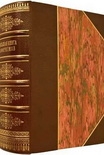Interesting Women Andrea Lee (e books free to read .TXT) 📖

- Author: Andrea Lee
Book online «Interesting Women Andrea Lee (e books free to read .TXT) 📖». Author Andrea Lee
I don’t know what else to do but stumble on with my story.
Aunt Noah was having a good time showing me off. On one of the last days of my visit, she drove me clear across the county to the house where she grew up. I’d never been there, though I knew that was where it had all begun. It was on this land, in the seventeen forties, before North Carolina statutes about slavery and mixing of races had grown hard and fast, that a Scotch-Irish settler—a debtor or petty thief deported to the pitch-pine wilderness of the penal colony—allowed his handsome half-African, half-Indian bond servant to marry his only daughter. The handsomeness of the bond servant is part of the tradition, as is the pregnancy of the daughter. Their descendants took the land and joined the group of farmers and artisans who managed to carve out an independent station between the white planters and the black slaves until after the Civil War. Dissertations and books have been written about them. The name some scholars chose for them has a certain lyricism: Tidewater Free Negroes.
My daddy grew tobacco and was the best blacksmith in the county, Aunt Noah told me. There wasn’t a man, black or white, who didn’t respect him.
We had turned onto a dirt road that led through fields of tobacco and corn farmed by the two tenant families who divided the old house. It was a nineteenth-century farmhouse, white and green with a rambling porch and fretwork around the eaves. I saw with a pang that the paint was peeling and that the whole structure had achieved the undulating organic shape that signals imminent collapse.
I can’t keep it up, and, honey, the tenants just do enough to keep the roof from falling in, she said. Good morning, Hattie, she called out, stopping the car and waving to a woman with corn-rowed hair and skin the color of dark plums, who came out of the front door.
Good morning, Miss Nora, said Hattie.
Mama’s flower garden was over there, Aunt Noah told me. You never saw such peonies. We had a fishpond and a greenhouse and an icehouse. Didn’t have to buy anything except sugar and coffee and flour. And over there was a paddock for trotting horses. You know there was a fair every year where Papa and other of our kind of folks used to race their sulkies. Our own county fair.
She collected the rent, and we drove away. On the road, she stopped and showed me her mother’s family graveyard, a mound covered with Amiel and Hopper tombstones rising in the middle of a tobacco field. She told me she paid a boy to clean off the brush.
You know it’s hard to see the old place like that, she said. But I don’t see any use in holding on to things just for the sake of holding on. You children are all off in the North, marrying your niggers or your white trash—honey, I’m just fooling, you know how I talk—and pretty soon we ugly old folks are going to go. Then there will just be some bones out in the fields and some money in the bank.
That was the night that my husband called from New York with the news we had hoped for: his assignment in Europe was for Rome.
(You really pissed them off, you know, says my cousin, continuing where he left off. You were already in Italy when the article was published, and your mother never told you, but it was quite an item for the rest of the family. There was that neighbor of Aunt Noah’s, Dan Mills, who was threatening to sue. They said he was ranting: I’m not African-American like they printed there! I’m not black!)
Well, God knows I’m sorry about it now. But really—what could I have called them? The quaint colored folk of the Carolina lowlands? Mulattos and octoroons, like something out of Mandingo?
(You could have thought more about it, he says, his voice softening. You could have considered things before plunging into the quilts and the superstitions.)
You know, I tell him, I did talk to Aunt Noah just after the article came out. She said: Oh, honey, some of the folks around here got worked up about what you wrote, but they calmed right down when the TV truck came around and put them on the evening news.
My cousin drums his fingers thoughtfully on the table as I look on with a certain muted glee. I can tell that he isn’t familiar with this twist in the story.
(Well—he says.) Rising to brew us another pot of coffee. Public scourging finished; case closed. By degrees he changes the subject to a much-discussed new book on W. E. B. Du Bois in Germany. Have I read about that sojourn in the early nineteen thirties? Dubois’s weirdly prescient musings on American segregation and the National Socialist racial laws?
We talk about this and about his ex-wife and his upcoming trip to Celebes and the recent flood of Nigerian Kok statues on the London art market. Then, irresistibly, we turn again to Ball County. I surprise my cousin by telling him that if I can get back





Comments (0)